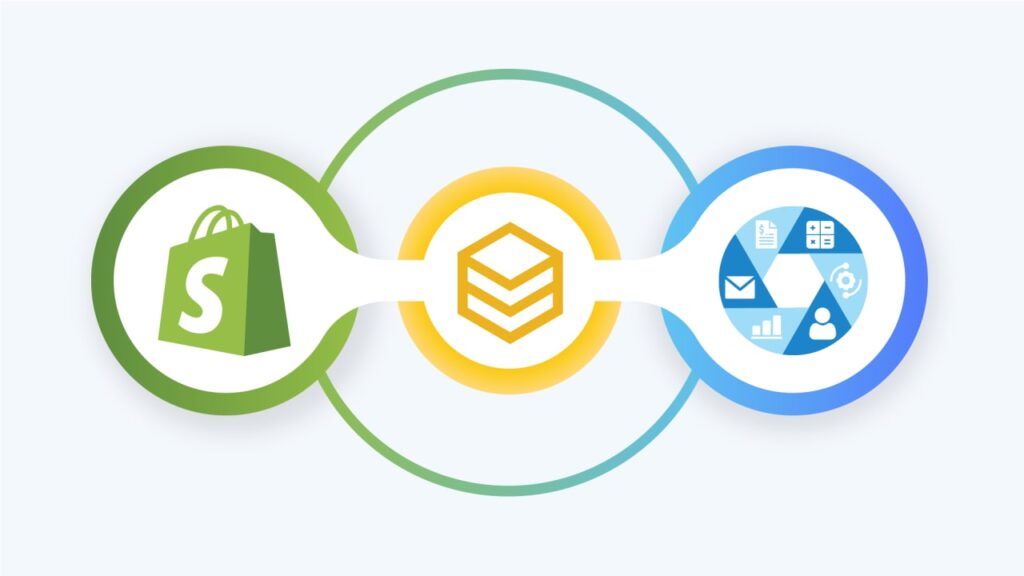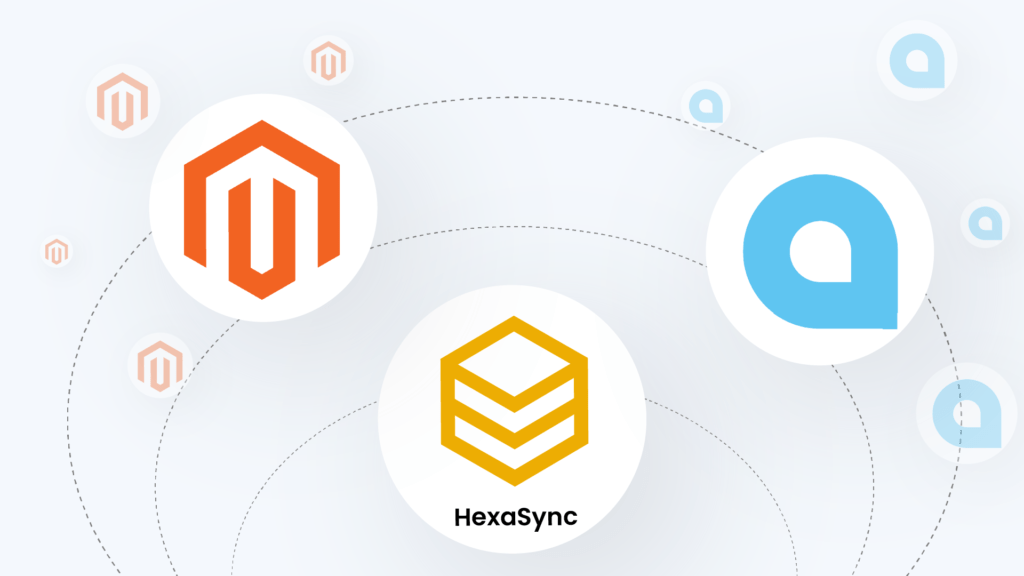Table of Contents
Overview
Nowadays, more and more businesses tend to choose enterprise resource planning (ERP) systems in their business processes. This solution brings significant efficiency to businesses in saving costs, human resources, and business management. However, the ERP implementation process is complicated and time-consuming because of some obstacles. This article will write about 7 common ERP implementation challenges so that you can learn more about them.
What is ERP Implementation?
First, to better understand ERP implementation, we will go to the definition of ERP. What is ERP? ERP is software used to automate and manage business operations such as accounting, sales, marketing, human resources, etc. An ERP system connects your enterprise’s multitude of business processes and allows data to flow back and forth. It eliminates data duplication and provides data integrity. This software helps your business save a great deal of time and money.

ERP implementation is the process of planning, configuring, and implementing an ERP system. This process will take several months because of its complexity in supporting and automating many different functions. As of 2020, 35.5% of enterprises said that their organization has chosen to upgrade or redeploy their existing ERP system, while 12.9% said that their organization has chosen to migrate to a higher-level ERP vendor(Statista).

This implementation needs to be careful, divided into several stages, and have a clear direction. Additionally, organizations need to carefully define their requirements, determine how to redesign their processes, and rigorously test them before implementation. Then, the ERP system will maximize its function.
The ERP implementation process is very complex. Besides its limitless benefits, there are still many barriers and challenges that business owners need to overcome. Here are the top 7 ERP implementation challenges that you need to know before implementing the ERP system:
7 Common ERP Implementation Challenges
Right Vendor Solution
Choosing the right ERP system is one of the first challenges in implementing ERP for your business. ERP implementation greatly affects the strategy and future success of the company. Currently, there are thousands of ERP vendors out there. Each system has different functions and features. To choose the right and best ERP system for your business, you need to research and choose carefully.
Project Planning
One of the problems that businesses face during ERP implementation is that the estimated time and budget exceed them. Most businesses underestimate the time and budget it takes to implement this system. Therefore, a specific ERP implementation plan is so important. To prevent the above two problems, businesses need to define clear goals and make real plans.
Data Quality
Data quality is an important issue during ERP system implementation. However, old company data stored for long years when migrating to a new ERP system may not be completely accurate. Data quality issues can have a significant impact on an organization’s information systems. Therefore, understanding data quality issues to ensure success in ERP implementation is so essential.
Technical Requirements
One of the biggest risks while implementing ERP is technical issues. The servers and hardware available in the enterprise need to modify, and the new and modern ones need to purchase and install. In addition, the intranet should be analyzed and modernized if required. Businesses also need to carefully consider the speed and bandwidth of Internet access. These are not necessary unless you are adopting a cloud-based ERP system.
If the above requirements are low appreciation, they can affect the entire ERP implementation project. Businesses face software usage with slow performance, which leads to slow business speed.
Resistance to Change
No matter how large your business is, ERP implementation can be difficult because of resistance to change. Deploying a new enterprise system always causes anxiety and resistance among employees. Their biggest fear is the loss of their jobs, they fear that this system might replace their entire previous roles. In addition, employees are afraid that their value will reduce and they cannot control all business processes and procedures. Furthermore, a group of people is not able or willing to accept change. All those reasons lead to resistance to change.
Overall Cost
According to Statista, 46% of businesses say that their ERP implementation projects are overdue by 2020. The main cause of cost overruns is that businesses underestimate the amount of work that needs to complete in ERP implementation. Indeed, other costs lead to a budget break like data migration costs, training costs, and more. To limit this problem, businesses need to calculate and consider these costs.

Data Integration
An important step in implementing an ERP system is transferring data from the old system to the new ERP system. It can take a long time to find all the company data. Your company’s data can be very extensive, perennial, and involve many different departments. Thus, plan your data migration carefully so that your business maintains the ERP project as expected. In addition, your data will be more accurate and consistent.
The Need for ERP Implementation
When any business is growing, the amount of work that needs to manage is increasing. Meanwhile, manual work makes businesses bored and unable to keep up with the schedule. Failure to keep up with customer needs can affect the quality and reputation of businesses in the growth phase.
Implementing ERP software will help companies bring all the processes together into a single application. It is very flexible and convenient when all departments can access the same data. Besides, ERP software automatically organizes, analyzes, and generates reports of available data. Therefore, the response time to other customers accelerates, increasing the working efficiency of the business.

Below are some main benefits of ERP implementation that help companies manage their business operations successfully.
Money-Saved
One of the prominent benefits is reducing operating costs. Although the cost of implementing ERP is a big investment, companies will save a lot of operational costs later. Most of the operations are automatic, companies can reduce the number of employees and save a significant source of costs. Additionally, the cost of training some systems will also eliminate. This benefit not only saves money but also reduces a significant amount of time.
Increased Collaboration
With a unified data source, all departments can use data sources from other departments. ERP systems break down previous barriers between departments in the company. Thus, cooperation between departments will increase that avoid any errors due to incorrect data.
Optimizing Efficiency
ERP systems have helped businesses simplify operational processes that are time-consuming and labor-intensive when done manually. The daily repetitive tasks of the departments are all automated, allowing employees to focus on the main work without bothering others.
Data Security
One of the outstanding features of ERP is good security. The system has a firewall and limited controls to prevent data breaches. This allows administrators to manage employee access rights. Administrators can immediately deactivate access or grant new access rights to any employee.
Better Analytics
The ERP system saves all the data of the business coming with the function of data analysis and reporting. The software will help businesses to create various reports quickly and easily. These reports can cover every department in the company such as income and expense reports to KPIs, human resources, etc.
Why HexaSync Integration Platform?
Currently, there are many ERP integration approaches that businesses can choose from them. So that organizations don’t have to build integrations between their ERP systems and external applications, the middleware will solve this problem. Consequently, businesses will save a lot of time and effort.
HexaSync Integration Platform is one of the effective middleware solutions integrating ERP systems that businesses can choose. HexaSync will help your business automate your operations seamlessly by connecting to both your old system and your modern SaaS applications.

Over the years, HexaSync has successfully integrated many different businesses. We have successfully integrated worldwide-famous ERP systems. There are several projects that we successfully integrate such as
- Integrating with SAP B1,
- Integrating with Acumatica,
- Integrating with Microsoft Dynamics 365 Business Central
We always strive to find the perfect integrated solutions for our customers. As a result, your business will save time and costs in integration projects.
Final Words
ERP implementation really takes the future of your business to the next level. However, besides these perfections, there are still many ERP implementation challenges that businesses have to get over. To successfully implement and achieve the desired results, organizations need to plan carefully to face these challenges.















































